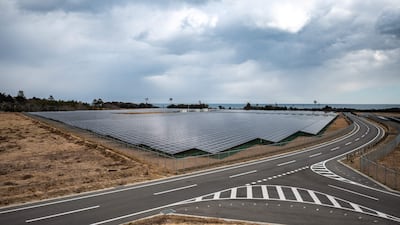Carbon emissions have risen almost every year since 2015, and despite increased commitments from governments to transition to clean energy, the climate crisis could result in significant economic and social costs for the world economy, BP has said.
While carbon neutrality ambitions of governments globally have “grown markedly in the past few years”, pointing to new and increased momentum in tackling climate change, there is “significant uncertainty as to how successful countries and regions will be in achieving those aims and pledges”, BP said in its annual “Energy Outlook".
“Other than the Covid-19-induced dip in 2020, carbon emissions have risen in every year since 2015,” said Spencer Dale, chief economist at BP.
“The carbon budget is finite and it is running out: further delays in reducing CO2 emissions could greatly increase the economic and social costs associated with trying to remain within the carbon budget.”
The world is trying to build back better, greener and more sustainably as it recovers from the pandemic-driven slowdown to meet 2015 global emissions targets. Last year, countries from around the globe, especially some of the biggest polluters such as India, announced new strategies and goals as part of Cop26 in Glasgow to achieve carbon neutrality over the coming decades.
However, pandemic-related headwinds still remain and there are uncertainties as to how much countries, especially emerging economies, would be able to deliver on their climate pledges.
There is a renewed push from developed economies to fund the climate ambitions of lesser-developed nations as bodies including the UN have warned of dire climate catastrophe, destruction of natural habitats and loss of lives and livelihoods due to global warming.
BP, which has pledged to cut carbon it produces to net zero by 2050 amid pressure on the energy industry, has used three main scenarios — accelerated, net zero and new momentum — in this year’s report to explore the range of possible pathways for the global energy system to 2050.
The pace and extent of decarbonisation in BP’s accelerated and net-zero projections are broadly aligned with a range of the UN’s Intergovernmental Panel on Climate Change estimates, which are consistent with maintaining global average temperature rises to well below 2°C and 1.5°C, respectively.
Carbon emissions in all three scenarios increase above pre-Covid levels by 2050. Emissions in BP’s accelerated and net-zero scenarios peak in the early 2020s and by 2050 are about 75 per cent and 95 per cent below 2019 levels, respectively.
Emissions in new momentum peak in the late 2020s and by 2050 are about 20 per cent below 2019 levels, the report said.
“Importantly, the scenarios were largely prepared before the outbreak of military action in Ukraine and do not include any analysis of its possible implications for economic growth and global energy markets,” Mr Dale wrote.
Global energy demand measured at the final point of use (total final consumption, or TFC) peaks in all three scenarios as gains in energy efficiency accelerate. TFC peaks in the early 2020s in net zero, around 2030 in accelerated and in the mid-2040s in new momentum.
Hydrocarbons will continue to play a part and their role will only gradually decline as the world transitions to lower carbon energy sources, BP said.
chief economist at BP
In 2019, fossil fuels accounted for about 80 per cent of global primary energy. In BP’s three scenarios, that share declines to between 60 per cent and 20 per cent by 2050.
“Indeed, the total consumption of fossil fuels declines in all three scenarios over the outlook [period],” Mr Dale said.
“This would be the first time in modern history that there is a sustained fall in the demand for any fossil fuel.”
The share of fossil fuels will be taken over by the rapid expansion of renewable energy — wind and solar power, bioenergy and geothermal power — over the course of the outlook period, BP said.
The share of renewable energy in global primary energy is expected to increase to between 35 and 65 per cent by 2050, from about 10 per cent in 2019.
“In all three scenarios, the pace at which renewable energy penetrates the global energy system is quicker than any form of fuel in history,” Mr Dale said.
The increasing importance of renewable energy is also supported by the “continuing electrification of the energy system” as the share of electricity in total TFC will increase to between 30 and 50 per cent by 2050 from about 20 per cent in 2019 in the three scenarios, he added.


